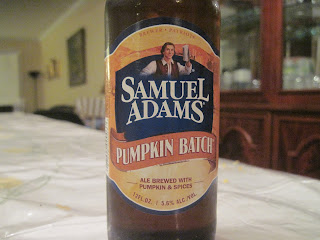Due to a conflict, I was unable to catch this week's Rabbi Frand parsha vort live. As the recorded version is not yet available as of the time of this writing, I have reposted a prior year's shiur. (Should I receive the vort (and have the time) to write tomorrow, I will attempt to post this year's shiur before Shabbos). Same rules as usual apply, I have attempted to reproduce this vort to the best of my ability. Any perceived inconsistency is the result of my efforts to transcribe the shiur and should not be attributed to R' Frand.
The first pasuk of Parshas Toldos contains an apparent redundancy as the parsha begins "V'aleh Toldos Yitzchak ben Avraham, Avraham Holid es Yitzchak" -these are the generations of Yitzchak son of Avraham, Avraham fathered Yitzchak. Many commentators have asked the question why the language is repeated. During tonight's shiur Rabbi Frand explored two answers to the question.
The Ibn Ezra writes that the reason for the second mention is the use of the language of Holid whichnteaches that Avraham raised and taught Yitzchak. He brings a proof from the pasuk by Yosef and his grandchildren of "Vayuldu al Birkei Yosef." This does not mean that they were fathered by or born on Yosef's lap. Rather it is translated that they were taught by Yosef.
Rabbi Frand then mentioned the Sforno who notes that in Lech Lecha, Avraham says to Hashem that he has no children and the "ben mesek" of his house is Eliezer. The Sforno explains that Avraham was saying that he has no son at present to take over his mantle and while he may have a son in the future, it may be too late.
In a similar vein, the Sfas Emes explains that Avraham was concerned that he would be so advanced in age when his son would be born that he would not have the ability to teach his son about who Avraham was. A person wants to teach his child his family customs and lineage and this was Avraham's concern. The Sfas Emes brings a proof from the Gemara in Yoma which explains that Eliezer was called "damesek" because he was mashke Avraham's Torah to the masses. However, Avraham wanted his son to be able to perform this task.
According to the Ibn Ezra, it is for this reason that the Torah writes that Avraham holid es Yitzchak - Avraham got his wish and was able to raise Yitzchak in his customs and tradition.
The second explanation mentioned by R' Frand was Rashi's reference to the "letzanei hador" - the jokers of the generation who wondered aloud whether Avraham was really Yitzchak's father or whether the true father was Avimelech. It was for this reason that the pasuk contains the double language as Hashem made a miracle and Yitzchak was the carbon copy image of Avraham.
Rabbi Frand then asked - why are they called jokers? If a person impugns the lineage of another he is wicked, not merely a joker!
Rabbi Frand answered in the name of R' Pam that this position could not have been seriously believed in Avraham's generation. Previously, Avraham and Sarah had lived together for many years without having children. Then, Avraham has a child with Hagar - obviously he is not the reason they were childless. Therefore those who insinuate that he could not have impregnated Sarah are obviously just jokers.
This presents the question - if they were just jokers who were posing an illogical question, why did they even need to be dignified with a response?
Rabbi Frand answered that it was because in future generations these jokers' positions might be taken seriously and people might seek to revise history and opine that the lineage of the Jews did not continue down through Yitzchak.
Rabbi Frand then mentioned how when Eisenhower was commanding the American troops at the close of WWII he instructed them to take film footage of the concentration camps so that the atrocities of the Holocaust could not later be forgotten. Who could have surmised that sixty years later, people would begin to doubt whether there was a holocaust or whether it was on such a large scale. Even though there are still survivors who tell first hand accounts of the atrocities, there are people who seek to deny the holocaust ever occurred for their own political gain. It is for this prescient reason that Eisenhower ordered that film footage be taken of the camps and why the Spielberg films and the various holocaust memorials are so important to preserving the memory of the six million against the onslaught of the jokers who seek to deny the holocaust even existed.
If you have seen this post being carried on another site, please feel free to click
www.kosherbeers.blogspot.com to find other articles on the kosherbeers blogsite. Hey its free and you can push my counter numbers up!











